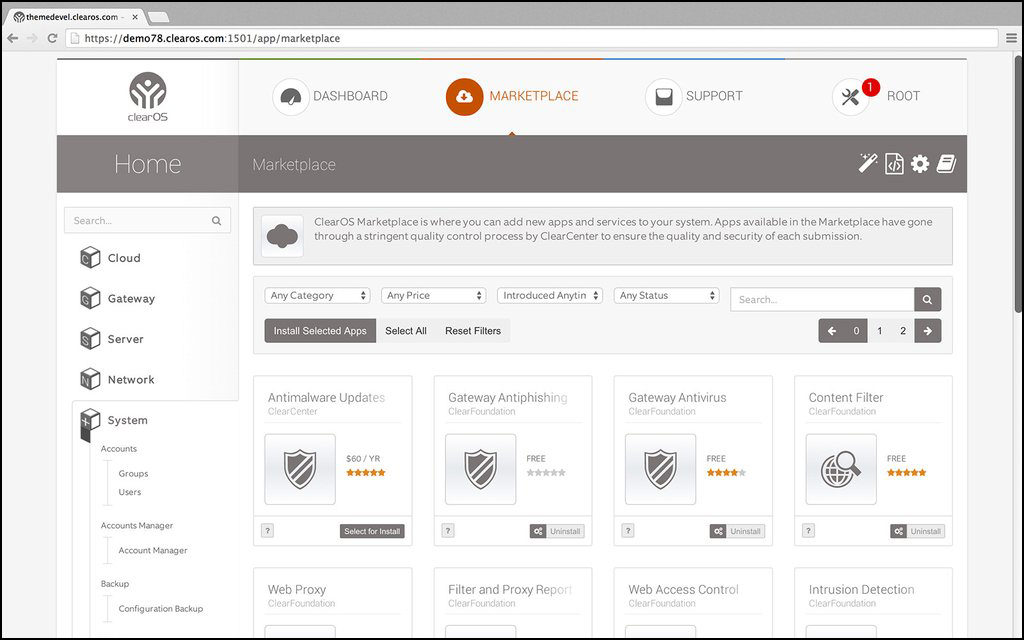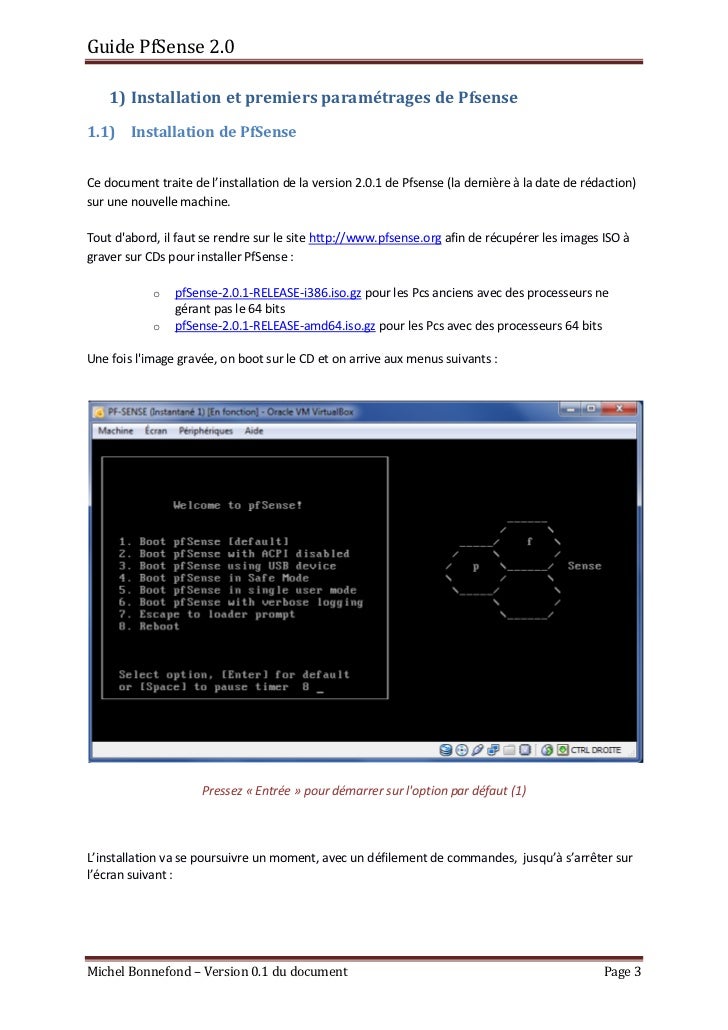

For details reference the log file /var/log/vmware-imc/toolsDeployPkg.log in the guest OS.Īn error occurred while customizing VM VMToolsNotWork. Further, when checking the VM Monitor | Events menu in the vSphere client there are errors when customizing the guest:Īn error occurred while customizing VM VMToolsNotWork. You can see that neither the hostname (DNS Name) nor IP are populated properly. I used the same customization file as previously only this time calling the VM VMToolsNotWork and setting the IP to 192.168.50.98 : After the updates I shut the VM down, converted back to a (new) template, and deploy a VM from it. The output above shows that open-vm-tools version 10.2.0-3~ubuntu0.16.04.1 will be installed along with a couple other dependencies. The following NEW packages will be installed: The following additional packages will be installed:

#Pfsense 2.0.3 iso install#
When performing the update we see: sudo apt-get -V install -only-upgrade open-vm-tools Now I’ll clone the original template to a new one and update open-vm-tools in the new template. You can see above that the hostname (DNS Name) is properly set to the VM name I specified and the IP is one that I specified during the template deployment. So, for grins, here is what happens when I deploy my Ubuntu 16.04 LTS template that has open-vm-tools version 1 0.0.7-3227872-5ubuntu1~16.04.1: Ubuntu 16.04 LTS tends to customize really fast in vSphere and within 30 seconds or so after deploying the VM will have the IP address and hostname show in the VM Summary view within the vSphere client. Everything updates properly, I shut the VM down, convert back to template, and start deploying through either vRealize Automation or straight from vCenter.
#Pfsense 2.0.3 iso upgrade#
I do it the old fashioned way in my lab by converting the template to a VM, booting, and then running sudo apt-get update & sudo apt-get upgrade -y . One thing I try to do is keep templates up to date so I don’t have a ton of updates waiting post-deployment. I have a number of templates in my labs (and in production, having the same issue). There are some issues I’ve been having with deploying (updated) Ubuntu 16.04 LTS templates to my vSphere 6.7 cluster (though this seems to not work in 6.5 as well).

Hey all – I recently went to deploy a solution involving a few Ubuntu 16.04 LTS VMs in my lab to eventually put on AWS.


 0 kommentar(er)
0 kommentar(er)
